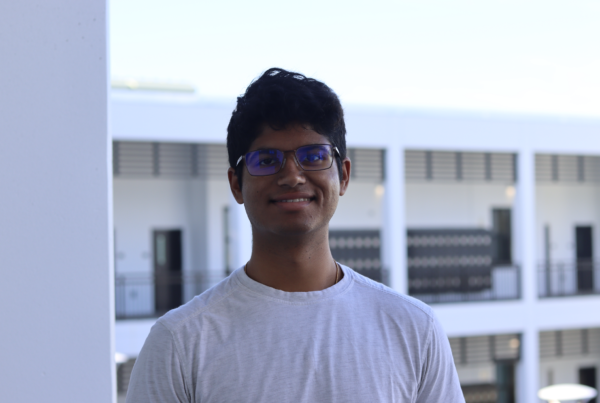Being a military brat is no easy feat. Changing homes, changing countries, moving (at times) thousands of miles away from friends and changing schools. As education becomes increasingly important in one’s future, changing schools becomes an even more arduous task; it is during these transitional times the school can really make a difference.
For this reason, in 2021, Fla. legislature established the Florida Purple Star of Distinction. This designation is available in many states, but it has yet to be established on a state-by-state basis.
On Friday, Nov. 10, the Florida Department of Education announced Robinson as one of Hillsborough County’s Purple Star Schools. The distinction will be awarded to Robinson through the 2025-2026 school year.
“It’s an honor to be awarded that distinction, being that we have so many military families and students at our school. It’s something that I’m excited to say that we’re now a part of,” said Lora Morgan, a climate and culture resource teacher who applied for the award. “We service our students, our military families and provide services for them.”
Despite the distinction being available since 2021, this is the first year that Robinson applied for this status.
“When I came to Robinson, I didn’t even know about a Purple Star school, and the military family mentioned it to me and said, ‘Hey, you know, it would really mean a lot to us families if you guys could become a Purple Star school,’” Morgan said.
To become a Purple Star School, some of the requirements include having a school Military Point of Contact (MPOC), Military Webpage, Transition Programs and more. Due to Robinson’s proximity to MacDill Air Force Base and its long history helping military students, much of this infrastructure was already in place.
“Our teachers get special training, and so do our social workers and psychologists and administrators on how to deal with, you know, families that are military because, you know, all the nuances that come with that, you know, all the moving and making sure we’re getting their transcripts right, making sure they’re in the right classes and all that,” said Principal David Brown.
Eric Smithers, an IB English Teacher who formerly taught traditional English classes, deals with these transitional issues every school year.
“I think with the IB program specifically, we need to be flexible and allow them time to kind of catch up to where we’re at, because obviously we hit the ground running before school even starts in an English class. So it’s important to kind of give them the resources and then give them a reasonable timeline to kind of catch up… but still kind of allow them to assimilate with the groups and the students can help them just as much as we can,” he said. “So I think that’s the biggest thing is kind of giving them that flexibility, giving them the confidence that they can actually do it.”
While teachers were a large help, military student Jake Abel (’24), who came to Robinson in his sophomore year, believes that the Robinson community as a whole is what really helped his transition.
“I personally always try to have a professional relationship with my teachers, but I can say that there [was] one [or] maybe two [teachers] that went above and beyond to make experience here better,” he said. “I think I just happened to get extremely lucky with the school. It happened to just be a large group of kind people and I have surprisingly loved everyone [since the] moment I’ve [gotten here].”
While Robinson does its best to help military students transition to their new school, the Robinson community as a whole is ultimately enriched.
“I just think everybody who comes to Robinson and teaches here or learns here is under the expectation that there’s going to be military families and students here and so I think it’s a part of the fabric of our culture,” Smithers said.


